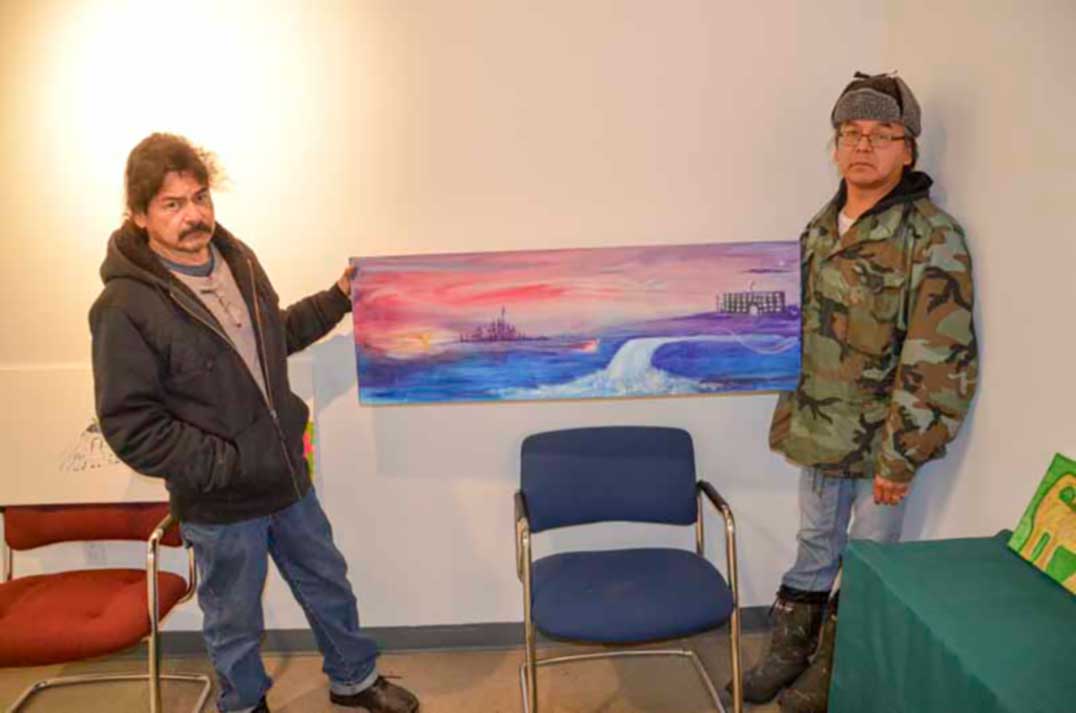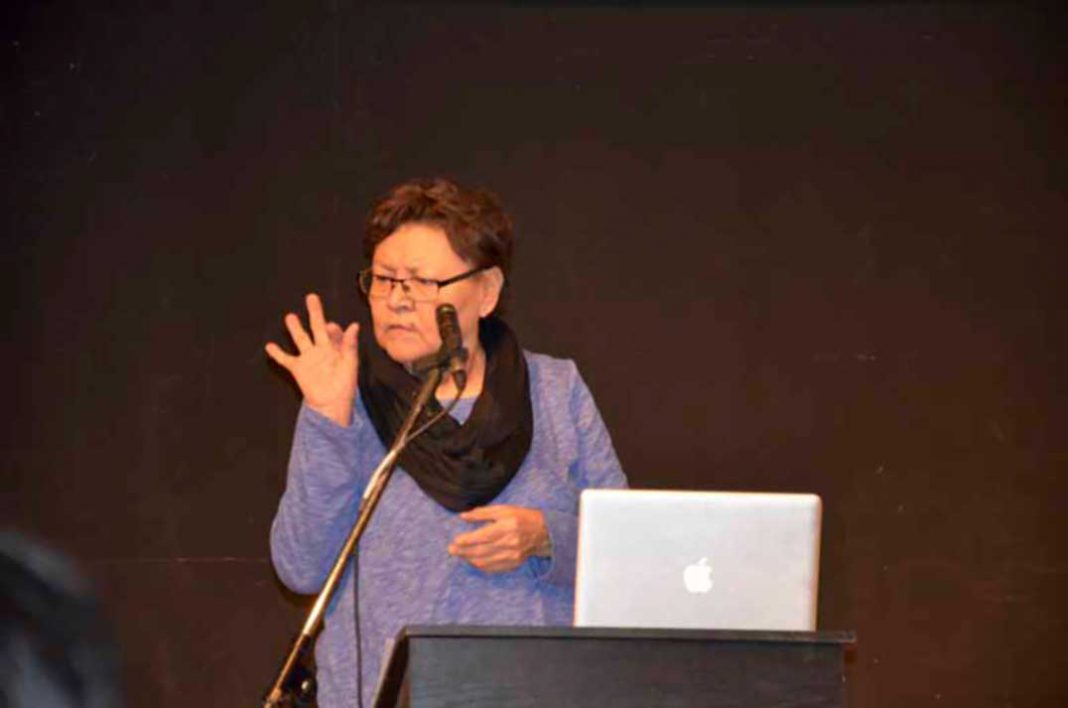Lifelong journey to reconciliation lies ahead for both survivors and their children’s generation
MANITOWANING—A two-day Indian Residential School Wellness Conference hosted by Noojmowin Teg Health Centre Traditional Services was held in the Debajehmujig Creation Centre in Manitowaning at the beginning of February.
Master of ceremonies Susan Manitowabi provided opening remarks along with welcomes by Debbie Francis, director of operations at Nooj, and Councillor Rachel Manitowabi on behalf of the Wikwemikong chief and council. Elder Urban Mejaki provided the opening prayer and Sunset Sagutch performed an honour song for residential school survivors before keynote speaker Barb Nolan took to the podium.
Ms. Manitowabi noted that throughout the two-day event, support personnel were on hand for those who might be overcome by the experience. “Sometimes these things trigger us,” she said. “It is nice to know that there’s support here. Ms. Manitowabi went on to introduce the support personnel and to point out the separate private room that had been set aside for counselling or if elders simply wanted to “sit and chat.”
Door prizes for the event were far from shabby either, including a weekend pass to Manitoulin Country Fest donated by Great Lakes Country 103 radio and Noojmowin Teg. Also near to hand were “tear bags.” “If you feel the need to cry, put it in a tear bag and we will take it back to Noojmowing Teg to be burned in the sacred fire,” said Ms. Manitowabi. “If you keep tears in they can be toxic.” She also strongly suggested that, due to the prevalence of the flu, attendees should frequently wash their hands.
Keynote speaker Barbara Nolan, of Garden River, but originally from Wikwemikong, began her address in Anishinabemowin but said she would attempt to speak in English as well so “non-speakers would get something out of it.”
Ms. Nolan discussed the history of the residential school system, noting how young Anishinaabe were sent to residential schools far from their homes, family, culture and language as part of an official government policy of assimilation. She related the history of her own story, how she was born in the Wikwemikong community of South Bay. “We didn’t speak English,” she recalled. “We went to church, so we only knew our prayers in English.”
She recalled how her father, a tourist operator, would bring non-Native families fishing or rent boats and motors.
One day, she and her siblings saw a group of black children with one family and wanted to play with them. Her older brother Isadore intervened and told them that they could not because they did not speak English. “I stood up and said we can speak English,” she recalled saying, following her declaration up by reciting “Blessed art thou… (a line from the prayer ‘Hail Mary’).”
Ms. Nolan noted that the residential school impact has been multi-generational. Including helping to create a situation where fluent speakers have refused to share their language with younger generations. The language having been successfully driven underground by the traumatic experiences of that older generation. “They do not speak openly anymore,” noted Ms. Nolan. In her own case, she has tried to bridge the gap with her grandchildren, although she did not pass the language to her own children. “It’s too late to turn back the clock,” she said. “But if I had stayed on my language, my own children would be speaking today.”
The teachers in residential school were very strict, she noted, and that approach to childrearing spilled over into her own parenting skills. Even though her own children tell her “oh mom, you weren’t that bad,” Ms. Nolan said that she is still wracked with guilt over how she raised her children in the harsh glare of hindsight.
Some of the stories related at the conference were only spoken in the language, prompting Jeanette Corbiere-Lavell to lament “it’s too bad there isn’t simultaneous translation, it’s really funny when you can understand.”
“I usually remember the funny things,” admitted Ms. Nolan. “Those are the things that I like to remember—but there were other times.”
Ms. Nolan noted that the conference functions as a safe place and that it takes time to reconcile the past. “We are here today,” she said. “We will continue our lives. Remembering your days at residential school is okay. You have the resources to do that.”
The second day of the conference was further focussed on the process of reconciliation, including an elders’ panel for ‘Reconciliation of Body, Mind and Spirit’ moderated by Ms. Nolan and Dan Garcia.
The afternoon session on the second day included a presentation on ‘Caring for, and Healing, Body, Mind and Spirit though Miijim (food),’ presented by Mary Ellan Flamand of the Wild Rice Project in Wikwemikong and Cody Leeson of the Child Nutrition Program at Noojmowin Teg.
The late afternoon of both days featured ‘Fun Tyme’ with Debajehmujig.
As part of the first day’s activities artist Mark Seabrook took the attendees through an interactive art therapy presentation that engaged them in a creative process as an outlet. “Art can provide a great therapeutic outlet,” he noted. Mr. Seabrook said that the sessions would be freeform, although he did hope that they would follow along the theme established by other sessions.




